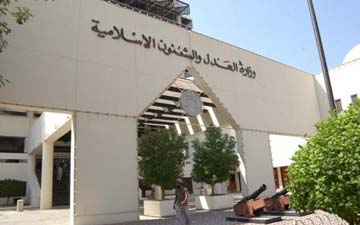ID :
492364
Wed, 05/16/2018 - 00:32
Auther :
Shortlink :
https://oananews.org//node/492364
The shortlink copeid
Court jails 115 on terror charges

Manama, May 15 (BNA): Chief Prosecutor and Acting Chief of the Terror Crimes Prosecution, Hamad Shaheen, has announced that the fourth High Criminal Court today issued its ruling against the members of the so-called “Zulfiqar Brigades” terrorist group.
According to the verdict, 53 defendants will be jailed for life, three for 15 years, one for 10 years, 15 for seven years, 37 for five years and six for three years.
The court also acquitted 23 suspects, revoked the citizenship of the 115 jailed defendants and confiscated the seized items.
The suspects stood trial over charges of forming and running a 138-member terrorist group contrary to the provisions of the law, taking command in it and joining it despite being aware of its terrorist purposes.
They were also accused of carrying out blasts, possessing explosives, training on the use of weapons and explosives, and attempting to murder policemen for terrorist purposes.
Charges also included placing bogus explosives in public areas, exchanging intelligence information with a foreign country and its aides in order to carry out hostile acts against the Kingdom, holding illegal gatherings, rioting, possessing flammable materials, and damaging property.
Documents of the case reveal that on November 25, 2015, the Public Prosecution received a report from the General Directorate of Criminal Investigation and Forensic Science indicating that leaders of terrorist groups operating in Bahrain and some fugitive convicts in Iran and Iraq held many meetings in Iran.
Supported and directed by leaders from the Iranian regime and members of the Iranian Revolutionary Guard, they agreed, during their meetings, to unify their criminal activities in the kingdom and merge under one terrorist organisation which they called “Zulfiqar Brigades”.
The unity and merger among the terrorist group leaders under the banner of one organisation was aimed at addressing the shortages in trained elements, weapons and explosives which they needed to carry out their terrorist schemes.
Their merger was also meant to deal with the consequences of the successes of the security authorities in seizing their weapons and explosive materials, and in arresting some of their trained commanders in the kingdom.
The suspects founded their terrorist organisation which included qualified and trained terrorist elements who were experienced in making and detonating explosives, using firearms, and establishing warehouses. The group subsequently recruited new elements, trained them on carrying out criminal plots and formed their military wing in Bahrain.
Investigations showed that the members of the military wing of the terrorist organisation, based on the instructions of their commanders, had carried out several terrorist attacks in the Kingdom after receiving the necessary training at the camps of the Iranian Revolutionary Guard in Iran and Iraq. The training, supervised by the Revolutionary Guard, focused on using all types of weapons and dealing with explosive materials, making and using bombs, gang war, ways to confront the police, personal security, surveillance of the targeted buildings and setting up of warehouses and hiding places.
The suspects monitored many locations and the movement of the security personnel for the purpose of implementing their terrorist plans. They carried out several explosions and crimes related to attempted murder of police officers, damaging of property and arson. They also placed bogus explosives in various areas across the country.
The Public Prosecution questioned 86 suspects in the presence of their defence lawyers. The defendants, except six, confessed to the crimes attributed to them.
The Public Prosecution also conducted inspections of the sites devoted to the storage of weapons and explosive materials, carried out graphic evidence with several suspects who described the way they had committed the crimes attributed to them, which was consistent with their confessions and the results of technical examination.
The Public Prosecution obtained the evidence of their crimes based on witness statements, confessions of the suspects, technical evidence, and forensic reports.
The 86 defendants were referred to the Fourth High Criminal Court which ordered the arrest of the remaining suspects.
The court deliberated the case in its sessions in the presence of their lawyers, who were enabled to present their defensive arguments, and provided them all the legal rights.





